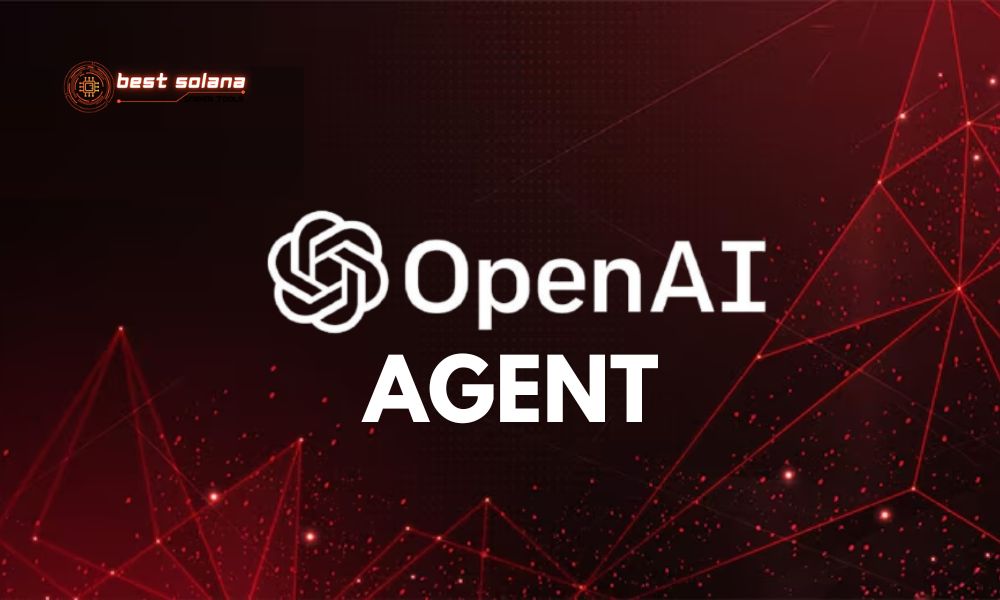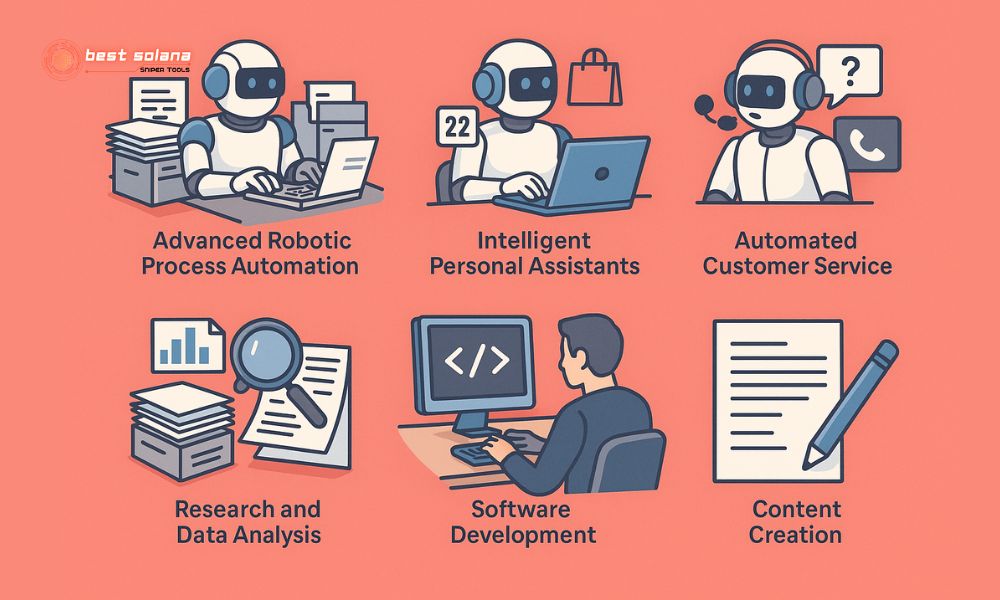OpenAI agent is reshaping how we interact with technology, ushering in a new era of intelligent automation and efficiency. With the ability to understand natural language, learn, and execute complex tasks, these agents are not just tools but powerful partners, promising to profoundly change many fields in the near future.
What is an OpenAI agent?
Such an AI system, often constructed using advanced large language models, can be understood as an intelligent construct capable of perceiving its environment, formulating plans, and executing actions to achieve a given goal. Unlike traditional chatbots that only respond based on direct input, this type of system can proactively interact with tools, APIs, or even digital environments to complete tasks.
For example, if one of these advanced systems were asked to book a flight, it not only comprehends the request but can also autonomously access booking websites, compare prices, select a suitable flight based on criteria (flight time, price, airline), fill in necessary information, and complete the booking process without continuous manual human intervention.

How does an OpenAI agent work?
The operational mechanism of an OpenAI agent typically includes core components:
- Perception and Understanding: Using LLMs as a foundation, an OpenAI agent possesses a deep understanding of natural language, analyzing requests and context. It can extract crucial information from diverse input data.
- Planning: Based on the goal, the agent will break down large tasks into smaller, executable steps. This process requires reasoning and logic to determine the optimal sequence of actions.
- Tool Use: This is a critical aspect. An OpenAI agent can be granted access to and use external tools like calculators, web browsers, APIs of other services (e.g., email, calendars, databases). This significantly expands the agent’s capabilities.
- Execution and Feedback: The agent performs the planned actions, interacting with the environment or tools. It also monitors the results of its actions and can adjust its plan if necessary based on received feedback.
- Learning: While not all current agents have robust continuous learning capabilities, the trend is for OpenAI agents to increasingly improve their performance over time by learning from experience and feedback.
Key features of an OpenAI agent
The development of the OpenAI agent brings several key features that set it apart:
- High Autonomy: Can operate independently to complete goals without constant supervision.
- Flexibility and Adaptability: Capable of handling unforeseen situations and adjusting strategies as needed.
- Diverse Integration: Easily connects with and leverages the power of many different tools and services.
- Deep Contextual Understanding: Thanks to the power of LLMs, they understand intentions and complex contexts far better than traditional AI systems.
- Potential for Self-Improvement: With reinforcement learning and learning from feedback mechanisms, these agents can become increasingly intelligent and effective.
Potential applications of an OpenAI agent
The emergence and development of the OpenAI agent opens up countless practical applications across many industries:
Advanced Robotic Process Automation (RPA): Automating more complex office tasks, from data entry and invoice processing to email management and meeting scheduling.
Intelligent Personal Assistants: Going beyond current virtual assistants, an OpenAI agent can proactively manage schedules, make appointments, shop, and handle complex personal requests.
Automated Customer Service: Handling complex customer inquiries, resolving issues, and providing personalized support at scale.
Research and Data Analysis: Automatically collecting, synthesizing, analyzing data from multiple sources, and generating reports or insights.
Software Development: Assisting programmers in writing code, debugging, testing, and even deploying applications. An OpenAI agent excels here.
Content Creation: Automatically generating drafts of articles, scripts, marketing emails based on specific requirements.

Challenges and the Future
Despite their immense potential, the development and deployment of these advanced artificial intelligence systems also face significant challenges. Issues regarding reliability, controllability, safety, and AI ethics require careful consideration. Ensuring these intelligent systems operate as intended, without causing unintended negative consequences, is a top priority.
In the future, we can expect this form of artificial intelligence to become increasingly sophisticated, featuring more complex reasoning abilities, enhanced learning capabilities, and deeper integration into daily life and professional activities. They will evolve beyond mere tools to become powerful collaborators, assisting humans in solving major problems and achieving new milestones.
The evolution of such AI systems marks a significant step in the ongoing journey toward mastering artificial intelligence. Understanding their nature, potential, and challenges will help us better prepare for a future where AI plays an increasingly central role.
In summary, the OpenAI agent is not just a technological advancement but also a key to unlocking countless new opportunities. It is gradually becoming an indispensable part of life and work. To stay updated with the latest AI news, don’t forget to follow Best Solana Sniper!
